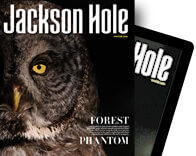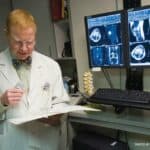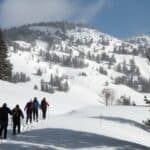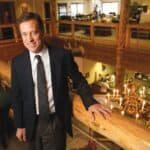Read The
Current Issue
Coming Together Through Skiing
A nonprofit founded by the widow of one of the world’s greatest skiers introduces kids to the sport her husband loved.
BY mark huffman
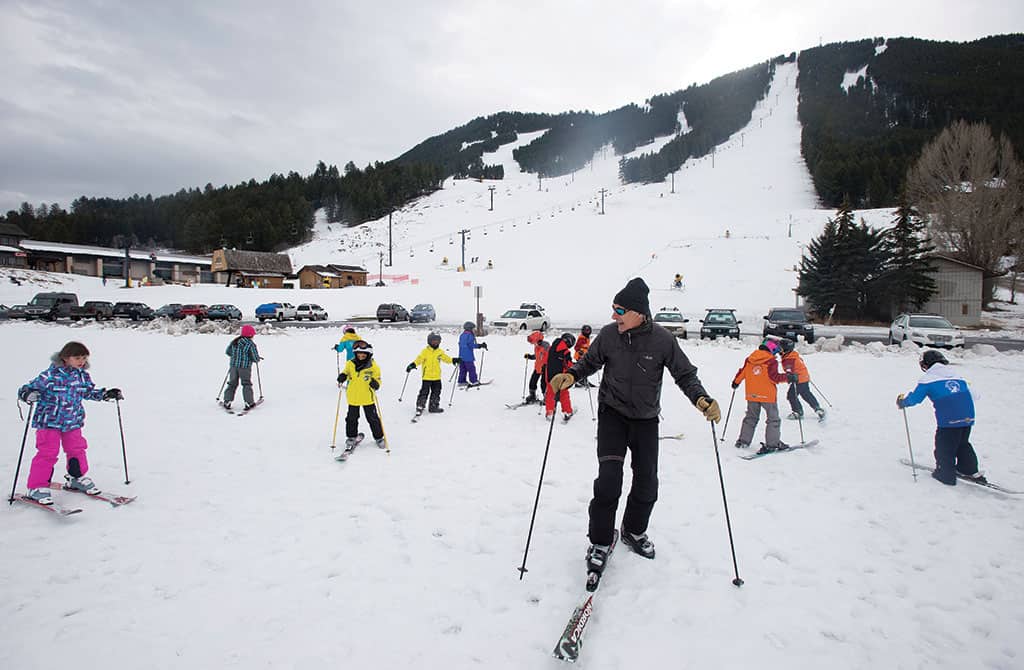
THE THOUSANDS OF Mexicans who arrived in Jackson Hole in the past twenty years didn’t come for the powder. Emily Coombs, who has traveled far and wide for a fresh line and founded steep-skiing and heli-skiing camps with her late husband, Doug Coombs, knows that. “They’re not here to ski,” Coombs says of the immigrants. “They’re here to work.” Add to that the cost and the cultural barrier, and you can see why getting Latino children on downhill skis is an uphill battle.
Jorge Moreno is a good example. Now a caseworker at Jackson’s Latino Resource Center, Moreno came to Jackson from the Mexican state of Guerrero via Texas in 1997, when he was fourteen, to work as a dishwasher. He didn’t get on skis until 2014. “Ninety percent of Mexican citizens haven’t seen snow,” he says. Their first Rocky Mountain winter is “overwhelming.” Moreno says Hispanics, now nearly 20 percent of Teton County’s population, look up at the slopes, see skiers, and “they think it’s something they are never going to do.”
Coombs saw the unplanned segregation when she took her son, David, now in sixth grade, to ski. The faces in David’s ski school classes were almost as pure white as the snow. That was a few years after her husband, Doug—who helped pioneer the sport of extreme skiing—died in 2006 in France while trying to help a fellow skier.
She had been looking for an opportunity to honor Doug in a meaningful way. Enter the Doug Coombs Foundation, which helps low-income kids, and their parents, ski but is about so much more than skiing.
Teaching kids that otherwise would not have the opportunity to ski bridges a barrier in this community. Jackson Hole has deep ties to skiing, and the sport is a big part of life here. The more residents who can be exposed to it, the closer the community becomes. “Skiing is good to get kids into the wider community,” Coombs says.
“It’s a way for them to complete their integration. It’s a problem in the future if they stay segregated. This is a good opportunity when they’re little to make friends.”
Mary and Beatriz Chavez have been in Jackson close to a decade, and their daughters are proof of what Coombs saw. “Once they first tried skiing, they loved it,” Mary Chavez says. “Now they don’t want to miss a class.”
Its first year, the foundation’s skiing program grew from an initial meeting of 8 kids to 28. Last winter, there were 123 young skiers, as well as some of their parents. The foundation raises money to buy skis and lift tickets for kids who can’t afford them. It also works with Snow King Mountain Resort to provide instruction. The foundation has supported two students to join the Jackson Hole Ski and Snowboard Club’s alpine racing program.
Coombs started the program with $5,000 of her own cash. She gets discounted gear from Marmot and K2. The program ran last year on about $200,000. The biggest part of that was spent on skiing, though the foundation has expanded to include a summer climbing program with Exum Mountain Guides and a partnership with Jackson Hole Youth Soccer. “We want kids to stay in shape year-round,” Coombs says. Most donations are small and come via Internet appeals. The foundation has never seen a gift larger than $5,000, Coombs says.
Scott McGee, director of the Mountain Sports School at Snow King, says the Coombs Foundation has broken down the wall between Hispanics and the sport and business of skiing. “For people who have always lived here, skiing is easy,” McGee says. “But if you don’t know anyone here who skis, it’s hard to get started. This program has brought kids like that in.” He expects Jackson’s Latino residents will come to see skiing the way its Anglo-American residents do: “You’ve got to put up with the cold, so you might as well enjoy it.”
